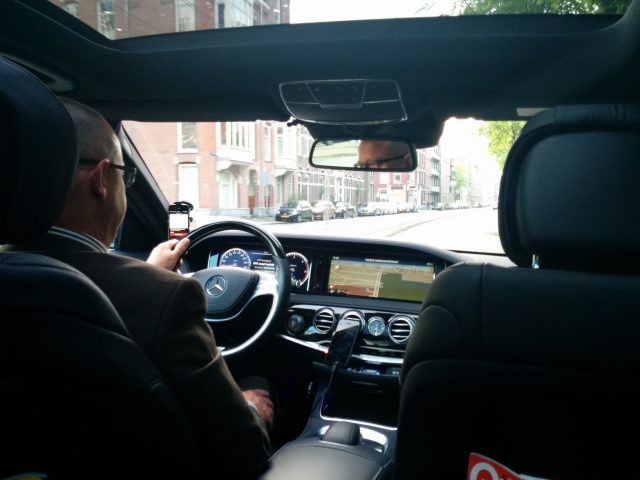
Lately, it’s been just one thing after another for Uber, the not-quite-taxi company.
On Tuesday, the Los Angeles and San Francisco district attorneys jointly filed a civil lawsuit in San Francisco against Uber "for making false and misleading statements to consumers." The prosecutors made good on a September 2014 threat to sue Uber and its rival Lyft. Rather than face a suit, the pink mustachioed car company opted to settle and will pay $500,000.
Amongst other allegations of unfair business practices, the prosecutors claim that Uber's background checks of its drivers are not quite up to snuff and that Uber charges a $4 "airport toll fee" to customers coming to or from San Francisco International Airport even though that fee is not imposed by the airport itself.
Most flagrantly, Uber apparently does not fingerprint its drivers, but rather outsources its background check to a third party, Hirease. By contrast, prosecutors note, "taxi regulators in the most populous parts of California require drivers to undergo criminal background checks using fingerprint identification."
A company spokeswoman, Eva Behrend, did not respond to direct questions, but did send Ars a statement.
"Californians and California lawmakers all agree—Uber is an integral, safe, and established part of the transportation ecosystem in the Golden State," she wrote. "Uber has met with the District Attorneys to address their concerns regarding airport operations, the uberPOOL product, background checks, and operation of the app. We will continue to engage in discussions with the District Attorneys."
The company has been subject to a recent spate of international clashes with regulators, who argue that Uber and its drivers are in violation of taxi law. Uber, by contrast, claims that it is not a taxi company, does not own any vehicles, and therefore is not bound by such laws. In California, that argument eventually resulted in state regulators establishing an entirely new class of transit carriers to accommodate Uber, Lyft, and other rivals.
Elsewhere around the globe, according to The New York Times, regulators in Spain and Thailand ordered Uber to halt its services after finding that it was in violation of local transit law. In a related case, a Dutch appellate court found Monday that Uber drivers (known locally as UberPop) are also not in compliance with national law.
On Monday, the company was barred from the Indian capital, New Delhi, after an Uber driver was accused of raping a passenger. The company pulled out of Nevada last month following a court order. Also in November 2014, the city of Toronto asked a court to shut down the ridesharing service.
reader comments
186